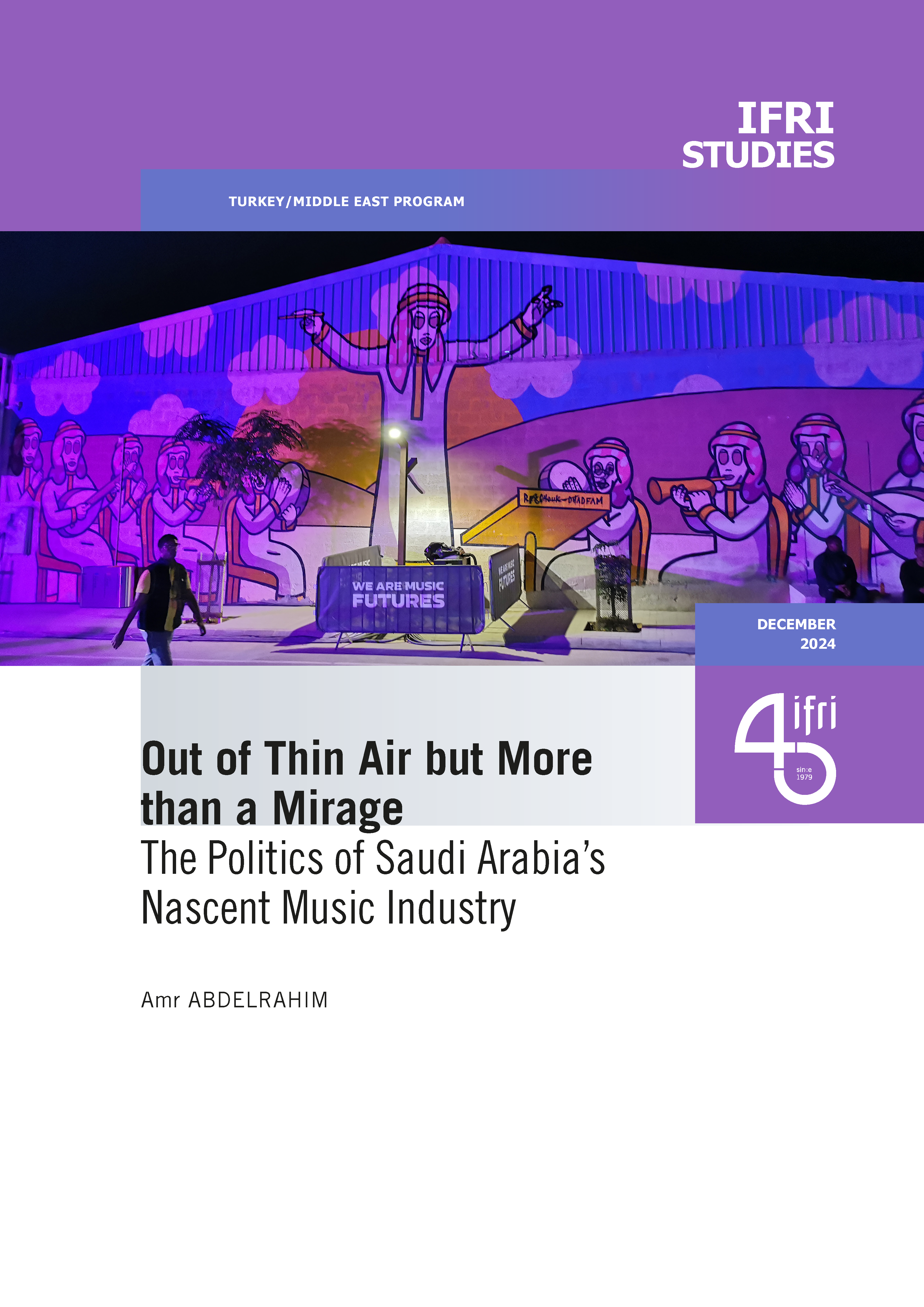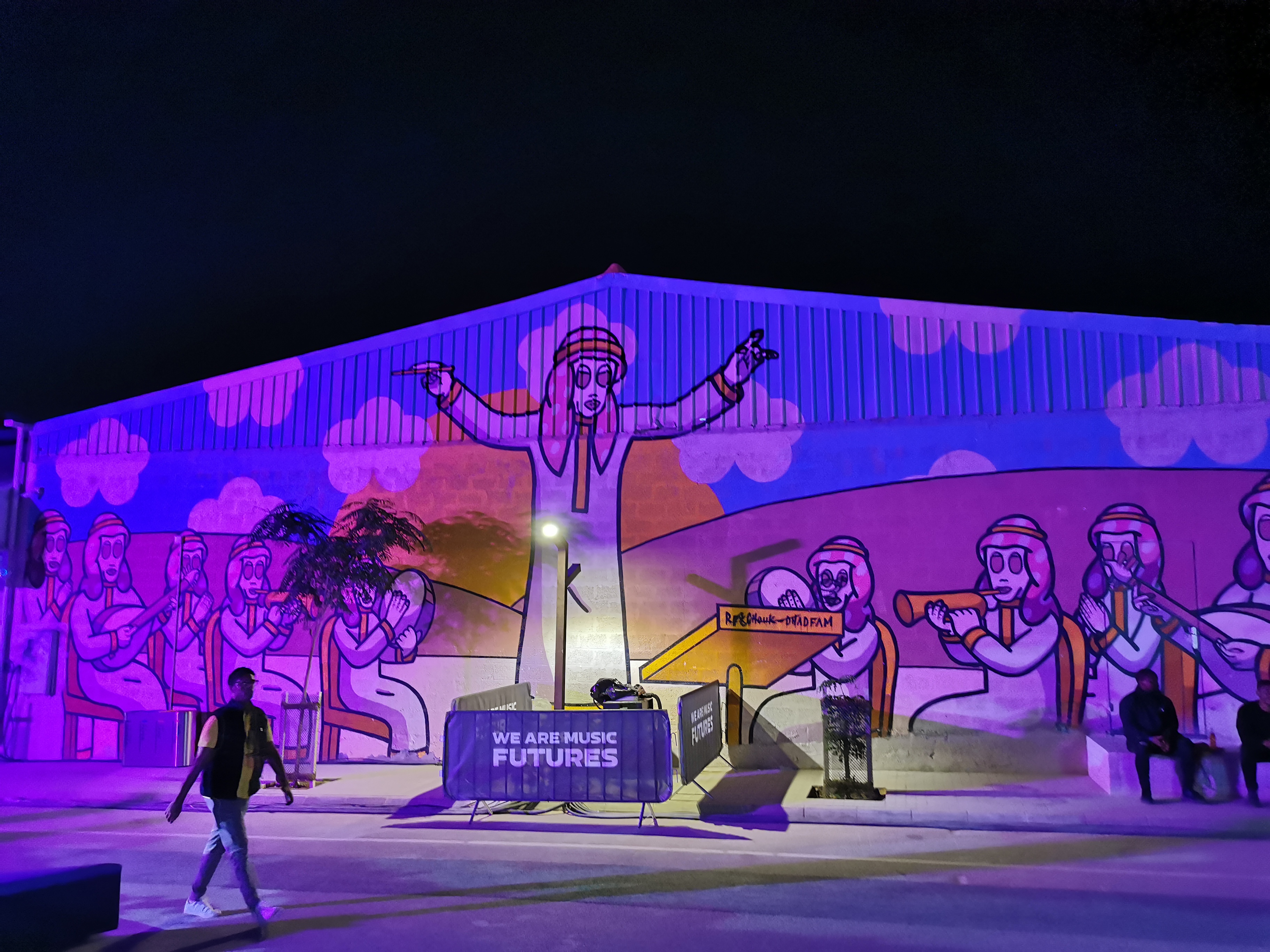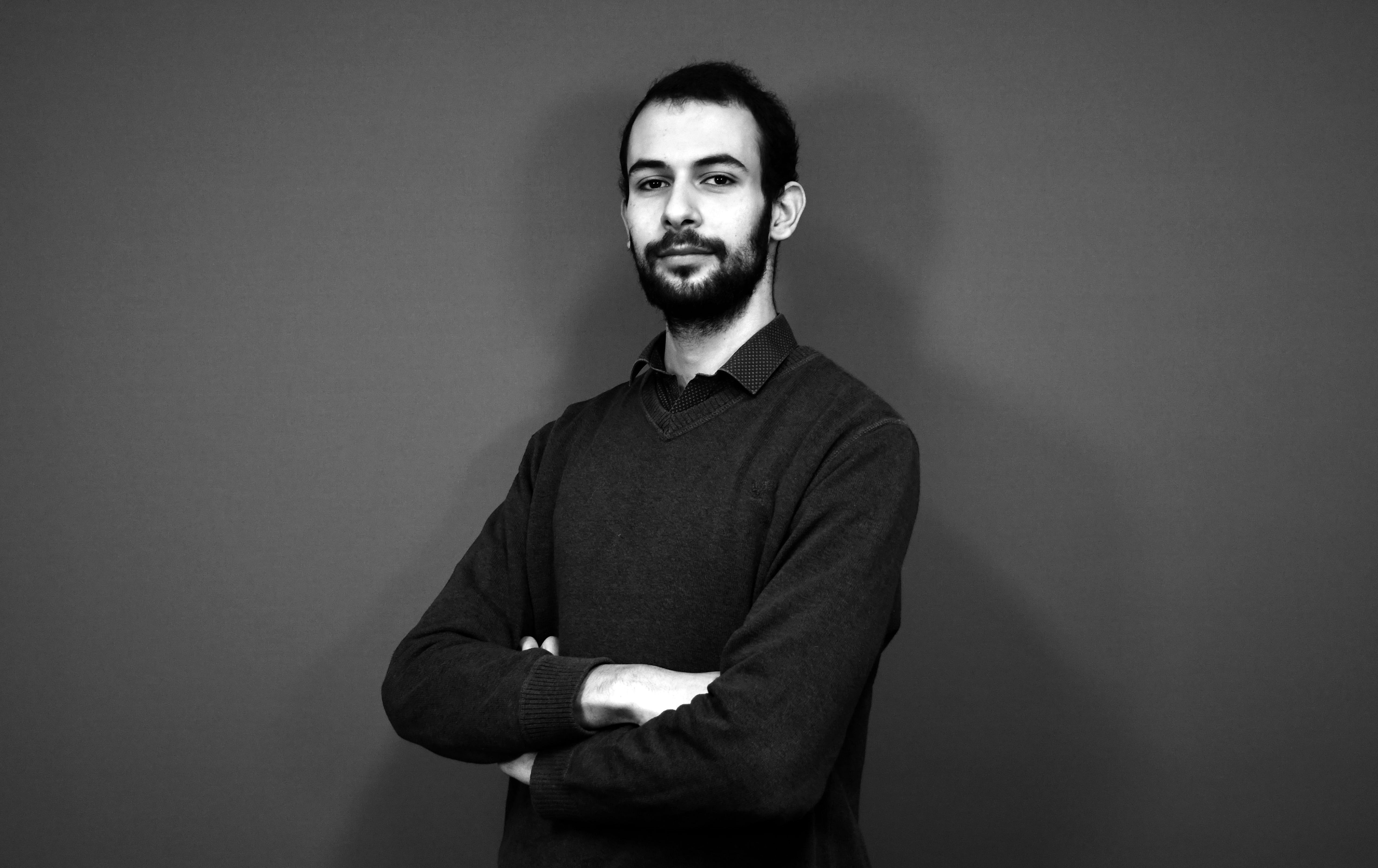Out of Thin Air but More than a Mirage: The Politics of Saudi Arabia's Nascent Music Industry

This study critically examines Saudi Arabia’s nascent music industry, which is promoted as a key element of Vision 2030, Crown Prince Mohammed bin Salman’s strategic framework to diversify the kingdom’s economy. It explores how state-led investments in music and entertainment intersect with authoritarian governance. The author neither dismisses these investments as conspicuous spending nor reproduces an alarmist narrative of impending cultural imperialism. The article takes a political sociology approach to understand how Saudi entertainment plans consolidate domestic power and reshape regional cultural landscapes.

The study underscores the challenges of building a music industry from the top down. However, even if these efforts may not contribute to achieving economic diversification or cultural influence, they are already reshaping the cultural landscape of Saudi Arabia and the wider Middle East and North Africa. The heavy degree of involvement of state-affiliated entities in the Saudi music industry is representative of how the centralization of ownership and control over various economic sectors contributed to the renewal of Saudi authoritarianism since 2016. Interviews, observations, and desk research are drawn upon to describe how the complex network of domestic, regional, and international stakeholders that are exploiting the Saudi state’s newfound interest in music and becoming entangled in rent-distribution networks.
Moreover, professional opportunities in Saudi Arabia will likely have a profound impact on the cultural scenes of neighboring countries with struggling economies, such as Egypt, as new mobilities and migrations make them increasingly dependent on the Gulf.
Amr Abdelrahim is a Research Fellow at Ifri’s Turkey/Middle East Program, which he joined in 2023. He works on Egyptian internal affairs, foreign policy, as well as broader regional geopolitics. His personal research focuses on youth, music, and politics in the Middle East and North Africa (MENA).

Available in:
Themes and regions
ISBN / ISSN
Share
Download the full analysis
This page contains only a summary of our work. If you would like to have access to all the information from our research on the subject, you can download the full version in PDF format.
Out of Thin Air but More than a Mirage: The Politics of Saudi Arabia's Nascent Music Industry
Related centers and programs
Discover our other research centers and programsFind out more
Discover all our analysesHostage diplomacy of the Islamic Republic of Iran. The case of Europeans detained in Iran
The so-called hostage diplomacy of the Islamic Republic of Iran refers to a political and diplomatic strategy in which Tehran uses the detention of Western nationals, dual citizens, or Iranian citizens residing in Europe, Australia, or the United States as leverage in diplomatic negotiations. This practice aims to exert pressure to secure political, economic, or diplomatic concessions as part of Tehran’s asymmetric response strategy. Hostage diplomacy remains a controversial yet effective tool from the perspective of the Islamic Republic of Iran, given its context of economic sanctions and diplomatic isolation.
Is the Republican People’s Party (CHP) Rising from the Ashes?
The victory of the CHP [Cumhuriyet Halk Partisi, Republican People’s Party] in the Turkish municipal elections of March 2024 firmly established it as the leading party of opposition to the Islamic-conservative AKP [Adalet ve Kalkınma Partisi, Justice and Development Party], which has been in power since 2002.
Israel-Palestine: One Solution, Two States
First proposed in 1936, the two-state solution has got lost over the course of several Israeli-Arab wars, colonization, the failure of the Oslo Accords, and the strategies of Israeli governments seeking rapprochement with certain Arab regimes. But it is currently the only imaginable solution. The numerous obstacles in its path could be overcome if the United States and its allies decided to impose it on the Israelis and Palestinians in opposition to their short-term visions.
"A Capital City Will Always Be a Capital City”: Konya’s Rise Under the AKP’s Rule
While the May 2023 parliamentary and presidential elections looked as a difficult test for the flagging Islamo-conservative Justice and Development Party (AKP), they eventually held on to power, demonstrating their remarkable foothold in the Turkish context. The party notably recorded one of its highest scores in Konya, confirming the massive and uninterrupted support of this two-million inhabitants central Anatolian city for Turkish political Islam.












